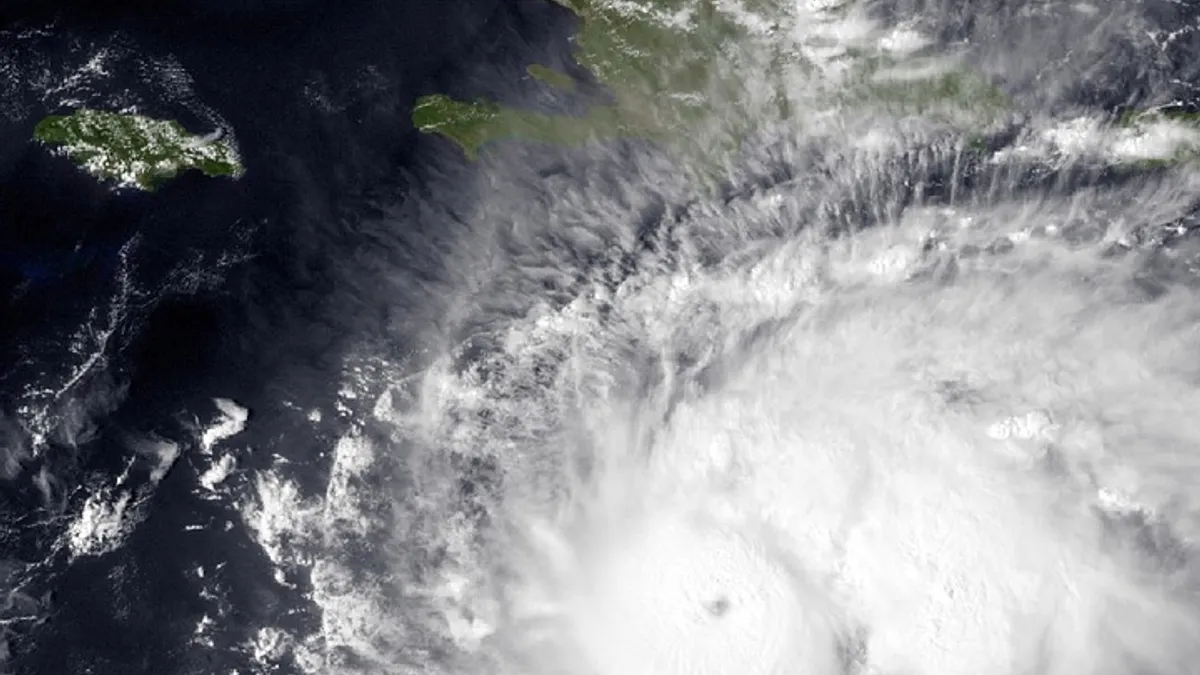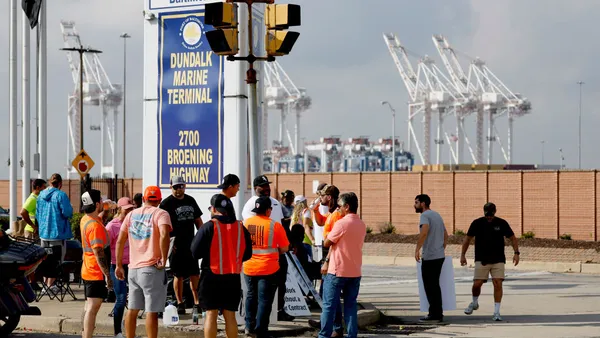This story was updated as of 10:40 AM Thursday.
The strongest storm to hit Haiti in half a century is making its way to the U.S., and while landfall is not expected until Thursday, supply chains are likely to feel the impact of the weather catastrophe soon.
Matthew may be the deadliest hurricane to make landfall in Florida since 1992. The storm is now striking the northwest Bahamas, and will likely strike Florida's East Coast later tonight, reaching Georgia and the Carolinas over the weekend.
The death tally left in Haiti and the Dominican Republic rose to 39 as of Thursday morning.
Meanwhile, residents of the states are preparing to hunker down or evacuate, as they stock up on food and gasoline. Supply chain managers, too, would do well to prepare.
Supply Chain Dive has put together a round-up of ways Hurricane Matthew is impacting the supply chain, including:
- Port closures
- Road traffic / flooding
- Supply shortages
Florida ports brace for Hurricane Matthew
The U.S. Coast Guard implemented port condition Zulu for Port Miami, Miami River, Port Everglades, Port of Palm Beach, Port of Fort Pierce and all other regional ports as of 8 PM Wednesday.
The South Carolina Ports Authority revised their detailed schedule: the Wando Welch and North Charleston terminals will be open at normal operating hours on Thursday. Stakeholders should continue to monitor the situation online.
The Georgia Ports Authority will close gate operations and restrict vessel arrivals beginning 6 PM Thursday.
Supply chains with goods expected to arrive in affected areas should contact the relevant port and logistics operators immediately to arrange for early pickup, if possible, or be alerted of additional delays. As the hurricane's path becomes more clear, many of these ports may update their operating status.
Expect heavy traffic along SC as evacuations begin
As of Wednesday at 3 PM, South Carolina began enforcing a full coastal evacuation, marking the first major evacuation in 17 years and affecting more than one million people according to the Associated Press. Interstate 95 is not affected, although logistics operators should expect severe delays due to heavy traffic.
If weather conditions worsen, flooding may affect various routes. Logistics operators should double check with on-hand or online flood maps to select safer routes, where possible.
Consumers raid grocery stores, Haiti offers preview of future shortages
Frequent hurricanes warnings in the region have prepared retailers for the supply raids that come with it, as consumers hoard goods to prepare for the worst. Reports indicate grocery and hardware stores anticipated the impact of the storm and ordered extra supplies ahead of time, but already some regions are seeing shortages of staples. In anticipation of price gouging, North Carolina is enforcing price gouging laws.
Shortages of these goods, as well as non-perishable food, drugs, tools, baby needs and sanitation supplies will likely spread as the hurricane nears. In anticipation of price gouging, North Carolina is enforcing laws that cover misconduct by manufacturers, retailers and distributors.
Meanwhile, relief supplies are running short in Haiti, providing a glimpse into the logistics needs following a disaster. Widespread flooding in Louisiana earlier this year showed the power of corporate charity in relieving these needs. Forklifts, transport services, medical and food goods will likely be in need following the storm, specially since undamaged stores will likely have low stocks in the next few days.
Real-time tracking of the storm can be found on The Weather Channel. For more information on how to best prepare your supply chain, read this story on flood resilience.













